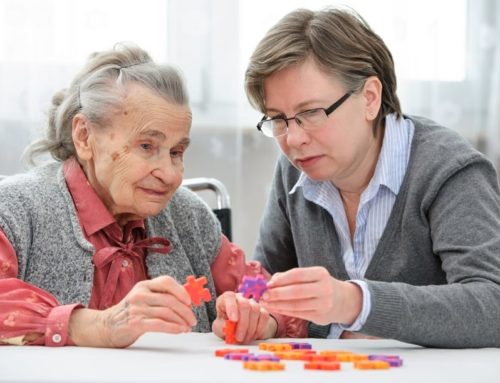As we age, we face different kinds of stresses than we did when we were younger. It may be that we start thinking about our mortality more often or we become disconnected from friends and family members which can lead to loneliness. Or we might not be as active as we once were, so we don’t feel the same sense of purpose. Whatever the root cause, the sad or negative feelings that we experience when we get older are legitimate and quite common. So, what are some of the keys to successful aging? Well, it turns out that one of the answers is really simple — get a dog. If you are like many animal lovers, you already how much joy a pet can bring into your life. But did you know that in addition to the unconditional love that we receive, dogs can also be good for our body and our mind? In fact, studies show that people that have furry friends live longer, happier, and more healthy lives. In this blog, FirstLantic explores how (wo)man’s best friend can help us lead more fulfilling lives.
Mindfulness
According to an article published by Harvard Medical School, “One of the greatest psychological benefits of interacting with a dog is the opportunity it provides to be more mindful — to purposely focus your attention on the present moment,” By the simple act of walking with your dog, you are reducing your stress level and letting go of some of your anxiety. Humans can be distracted by many different stimuli, and the more distracted we are, the less attention we pay to life’s simple pleasures. Animals can bring us back to the here and now.
Health Benefits
Research in Sweden, which included 3.4 million people, found that owning a dog is linked to a longer life. The study, which is believed to be the largest of its’ kind, found that people who lived alone with a dog had a 33% reduced risk of death, and an 11% reduced risk of cardiovascular disease. One of the hypotheses drawn from the research was that people that take care of a dog are more likely to stay active and live a healthier lifestyle. And simply having another living thing that relies on us can make us feel an increased sense of purpose and responsibility.
Other Emotional Benefits
Numerous studies have shown that animals can actually encourage positive thinking especially when someone is sick. It wasn’t that long ago that people thought animals in a hospital was a bad idea. However, you would now be hard-pressed to find a children’s hospital that does not have some sort of pet therapy program. The rise of animal therapy is backed by increasingly serious science showing that social support–a proven antidote to anxiety and loneliness–can come on four legs, not just two. Animals of many types can help calm stress, fear, and anxiety in young children, the elderly and everyone in between. One particular area of pet therapy that is showing increased promise is in the treatment of autism. For children, in particular, animal-assisted therapy can be used to help them learn empathy, communication, and social skills. It can also be used to help children with ASD manage their behavior.
In summary, animals often bring out the best in us whether emotionally or physically. As Roger Caras famously said, “Dogs are not our whole life, but they make our lives whole.” So, if you have ever thought about getting a dog but don’t know where to begin, certain breeds are much better suited to seniors. And, if you want a pure breed, it doesn’t mean you can’t rescue one. There are plenty of organizations that focus on specific breeds. If you simply aren’t able to manage a dog, then don’t forget about other furry (or not) companions such as cats, fish, guinea pigs, rabbits, etc. Anatole France best summarized it when he said, “Until one has loved an animal, a part of one’s soul remains unawakened.”
Read our other FirstLantic blogs
If you or a loved one needs help at home, please contact us
 AVAILABLE 24 HOURS A DAY/7 DAYS A WEEK
AVAILABLE 24 HOURS A DAY/7 DAYS A WEEK Careers
Careers







